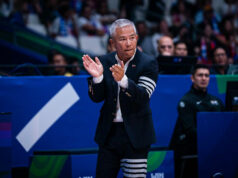Wimbledon is gone for the year, and, while expected, the decision of the All England Lawn Tennis Club nonetheless underscores the gravity of the situation in which humanity finds itself. Notwithstanding the vagaries of holding a fortnight’s worth of topnotch competition on extremely fickle perennial ryegrass, the tournament has been around since 1877, and through all of history save for a six-year period covering the Second World War. And yet, organizers felt compelled to scuttle the proceedings, chucking tradition, however reluctantly, in favor of public safety given concerns on the spread of the coronavirus disease 2019.
Certainly, the Club considered all possible alternatives before deciding to deep-six this year’s affair. They understood the implications of their choice in the face of Wimbledon’s status as the sport’s premier event. Holding it behind closed doors was a non-starter considering the logistics involved; even without the record crowds, a significant portion of the work force, typically numbering 6,000 or so, would still have been required to be on site and hard-pressed to practice social distancing measures. Meanwhile, postponement was tricky, especially with the prospect of playing indoors ruled out. A new schedule in late August, featuring fewer daylight hours and a surface less predisposed to withstand the change in weather conditions, would have been a stretch.
At a time when sports is viewed by all and sundry as a bright light, the absence of Wimbledon is a decided bummer. Nonetheless, there can be no criticizing the Club for doing the only thing it could under the circumstances. The United Kingdom has been hard-hit by the pandemic, and far better for it to help in the solution than be part of the problem. Parenthetically, it coordinated with other tennis bodies prior to taking a stand; had it pushed through with the tournament, it could well have seen withdrawals from marquee names despite contractual obligations that hitherto ensured their participation.
Which, no doubt, is why the likes of Novak Djokovic and Simona Halep, defending champions in the singles competitions, lauded the Club in the aftermath. Even as the cancellation hurt their cause, it represented a universal acceptance of the need to sacrifice personal objectives for the collective desire to overcome the prevailing threat to life. After all, for successes on the court to happen in the future, the biggest one off it must happen first.
Anthony L. Cuaycong has been writing Courtside since BusinessWorld introduced a Sports section in 1994.



